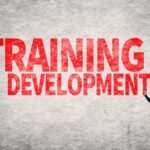Strategies for Effective Talent Acquisition: Attracting and Hiring the Right Candidates
In today’s competitive job market, attracting and hiring top talent is crucial for the success of any organization. To build a high-performing team, it is essential to implement effective talent acquisition strategies that attract and hire the right candidates. In this blog post, we will discuss key strategies to enhance talent acquisition, enabling organizations to attract and select top-quality candidates who align with their values, skills, and cultural fit.
- Define Clear Job Requirements and Ideal Candidate Profiles: Before initiating the recruitment process, it is essential to clearly define job requirements and develop an ideal candidate profile. Work closely with hiring managers and team leaders to identify the skills, qualifications, experience, and attributes necessary for success in the role. This clarity will guide the recruitment efforts and ensure that the organization is attracting candidates who possess the desired qualities.
- Enhance Employer Branding: A strong employer brand is crucial in attracting top talent. Highlight your organization’s unique selling points, culture, values, and employee benefits. Leverage various channels, such as your company website, social media, and professional networks, to showcase your employer brand and create a positive impression. Encourage current employees to share their positive experiences through testimonials or employee spotlights. A strong employer brand can significantly enhance the attractiveness of your organization to potential candidates.
- Leverage Multiple Sourcing Channels: Relying on a single sourcing channel may limit your candidate pool. To attract a diverse range of candidates, utilize multiple sourcing channels. This may include job boards, industry-specific websites, social media platforms, professional networking events, employee referrals, and partnerships with educational institutions or professional organizations. Tailor your sourcing strategy to the specific role and target audience to maximize the reach and quality of potential candidates.
- Craft Compelling Job Descriptions: Well-written job descriptions play a crucial role in attracting the right candidates. Clearly articulate the responsibilities, qualifications, and expected outcomes of the role. Emphasize the opportunities for growth, impact, and career development. Use language that reflects your organization’s culture and values, and avoid jargon or overly complex language. Highlight any unique or appealing aspects of the role and the organization to pique the interest of potential candidates.
- Implement a Structured Interview Process: A structured interview process helps assess candidates objectively and consistently. Develop a set of standardized interview questions that align with the job requirements and ideal candidate profile. Assign specific criteria for evaluating candidate responses. Consider utilizing behavioral or situational interview questions to gauge candidates’ past experiences and their ability to handle real-world scenarios. Train interviewers to ensure fairness, minimize biases, and focus on the most relevant factors for assessing candidate suitability.
- Assess Cultural Fit: Technical skills and qualifications are important, but cultural fit is equally crucial for long-term success. Assess candidates for their alignment with the organization’s values, work ethic, and team dynamics. Include team members or potential colleagues in the interview process to gather diverse perspectives on cultural fit. This will help ensure that candidates not only have the necessary skills but also contribute positively to the organizational culture.
- Provide a Positive Candidate Experience: The candidate experience during the recruitment process significantly impacts their perception of your organization. Ensure that the recruitment process is well-organized, transparent, and timely. Communicate with candidates regularly, providing updates on the status of their application. Offer opportunities for candidates to ask questions and engage with your organization. Provide constructive feedback to unsuccessful candidates, as this demonstrates respect and helps build a positive employer reputation.
Effective talent acquisition is a strategic process that requires a combination of well-defined job requirements, strong employer branding, diverse sourcing channels, structured interviews, cultural fit assessment, and a positive candidate experience. By implementing these strategies, organizations can attract and hire top-quality candidates who are not only qualified for the role but also align with the organization’s values and cultural dynamics. Remember, investing time and effort into talent acquisition is a worthwhile endeavor that sets the foundation for a high-performing and successful organization.


































